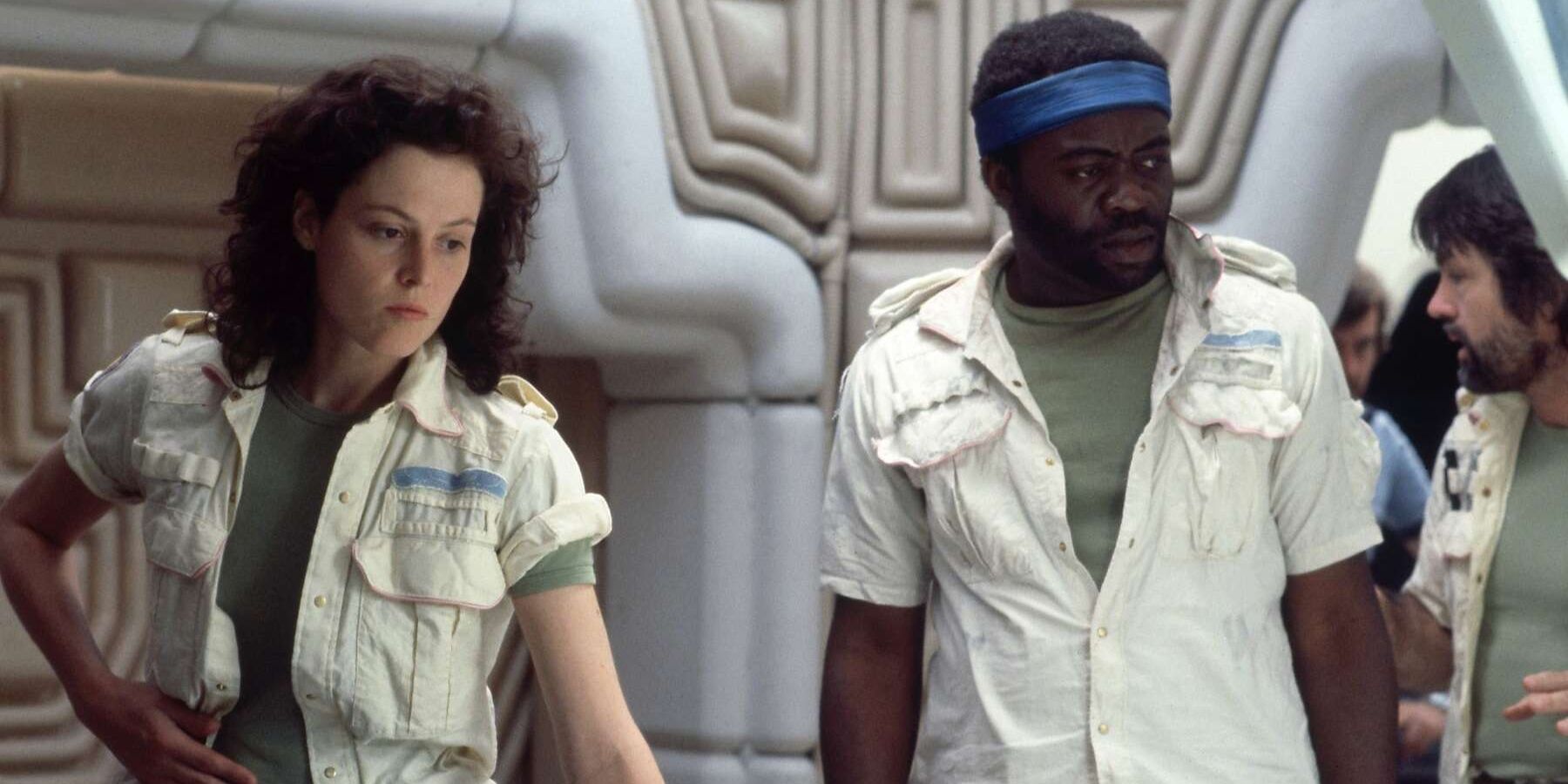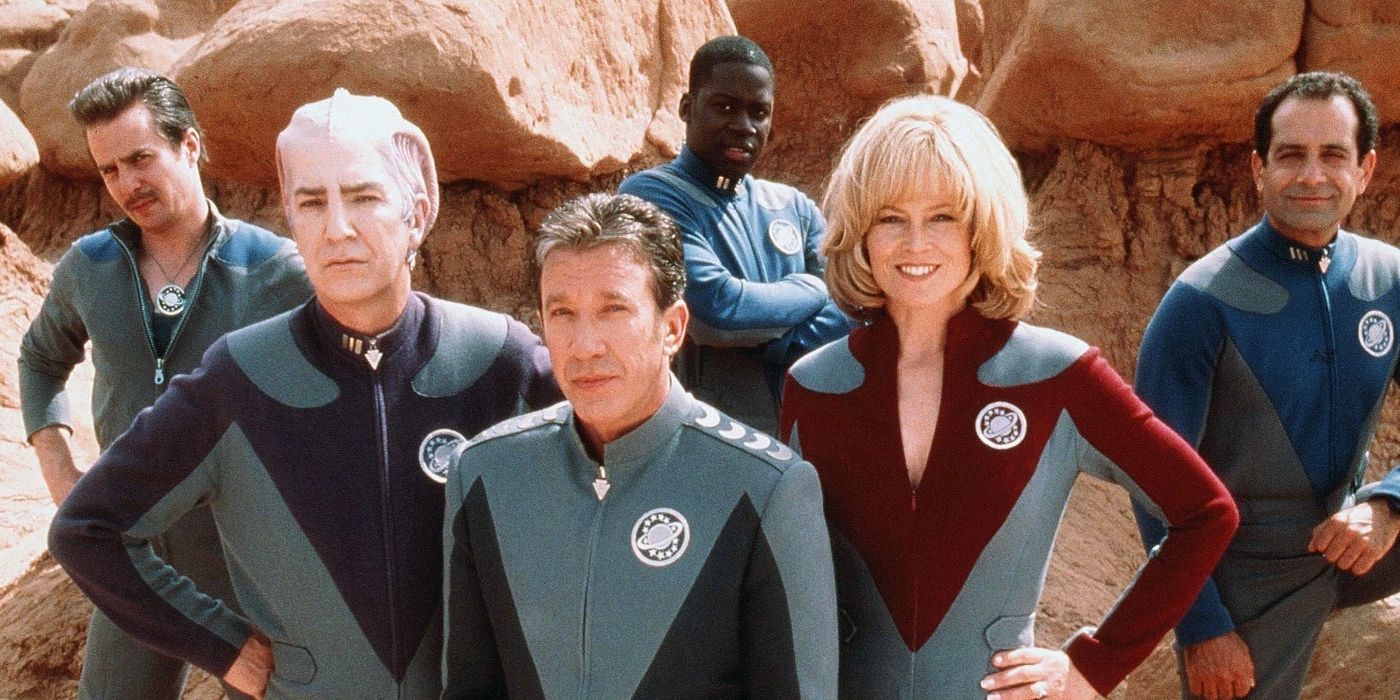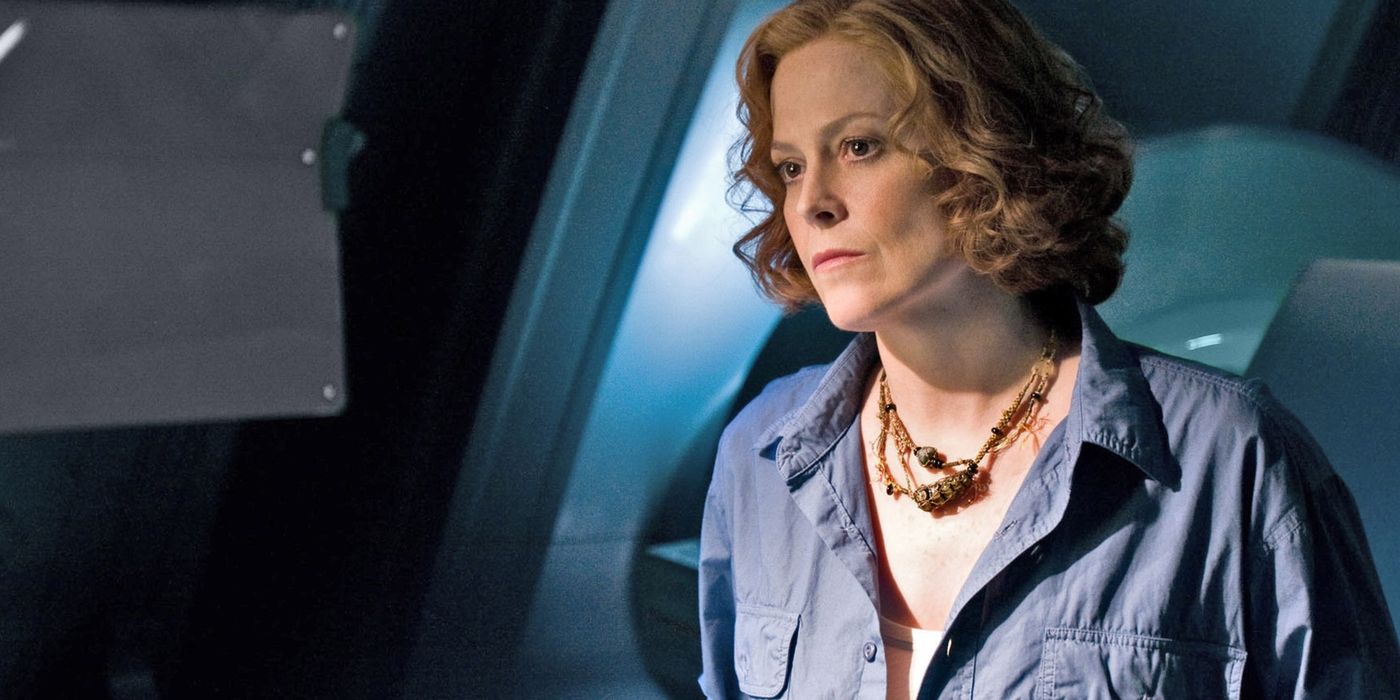Sigourney Weaver is now a household name, having starred in comedies like Ghostbusters and Working Girl, dramas like The Year of Living Dangerously and Holes, and biopics like Gorillas in the Mist. A talented screen and theater actor, Weaver's place in Hollywood was first cemented in the 1979 science fiction-horror film Alien -- a straightforward, atmospheric monster movie first pitched as simply Jaws in space. With Ridley Scott's detail-oriented direction -- and his fateful decision to make Weaver's character, Ellen Ripley, the last survivor of the starship Nostromo -- Alien became a bona fide classic, and very soon, Weaver would herself become a major element within the world of sci-fi cinema.
Weaver's Turn as Ripley in Alien Made Waves in Sci-Fi
H.R. Giger's chilling, monstrous creative vision gave Alien a suitably grim extraterrestrial monster, subsequently labeled a "xenomorph" in the James Cameron-directed sequel, Aliens. Weaver's lowkey and relatable portrayal of Ripley -- a steadfast, rational, and ultimately empathetic member of the Nostromo's crew -- was the only person to withstand and eventually defeat the dreaded xenomorph. Not only did Weaver elevate the character she was presented with in the script, but her star-making turn in Alien helped undo the decades-old standard of male-led sci-fi movies and TV shows, inspiring characters like The Terminator's Sarah Connor, Star Trek: Voyager's Captain Janeway, and Imperator Furiosa in Mad Max: Fury Road and its prequel, Furiosa.
After the horror-infused Alien and the action-heavy Aliens, Weaver would return to the role of Ellen Ripley two more times: in Alien 3 -- David Fincher's directorial debut -- and Alien: Resurrection. In addition to the character's longevity on and off the screen (Ripley returned time and again in comic books, novelizations, and video games), Weaver's proactive approach to her role meant that she paid attention to what various writers, directors, and producers would suggest about Ripley -- and would make sure that her character's demeanor, actions, and appearance reflected the often brutal circumstances of each story. But even outside of the franchise that brought her international acclaim, Weaver continues to fill her ever-growing resume with sci-fi.
Sigourney Weaver Has Become a Key Member of the Avatar Cast
Just last month, James Cameron's Avatar: The Way of Water saw Weaver provide voice work and motion capture acting to a brand-new character -- Kiri te Suli Kireysi'ite, someone with very strong ties to Eywa, the planet Pandora's central nervous system. Weaver's involvement with the growing Avatar franchise wasn't a big surprise. Having worked with Cameron on Aliens, Weaver partnered with the director once again for 2009's Avatar, playing Dr. Grace Augustine -- the inventor of the Avatar program. A notable departure from the cool-headed Ripley, Weaver unleashed a razor-sharp, sarcastic, and at times abrasive personality with Dr. Augustine. Initially distrusting the film's protagonist, Jake Sully -- played by Sam Worthington -- Augustine eventually takes the former Marine under her wing and helps him learn to master his new Na'vi body.
Dr. Augustine's death in the first movie didn't stop Weaver from coming back for the sequel, voicing a young Na'vi character whom the Sullies adopt as their own. This new character, Kiri, is revealed to have been born from Augustine's Avatar -- essentially establishing a crucial and personal mystery (both for the audience and Kiri herself) that may or may not be unlocked in future films. Weaver's transformation into a teenage Na'vi is not just the product of impressive CGI, as she effectively transforms her voice and mannerisms to fulfill a very different, yet equally effective, role in the franchise.
Weaver Knows How to Poke Fun at Herself and the Genre
In a skillful departure from the sci-fi fare that made her famous, Weaver joined Tim Allen, Alan Rickman, and Sam Rockwell for a much-beloved spoof of classic Star Trek in the 1990s, playing one of a group of television actors who are pulled into a fight between two alien species. A highly-entertaining, successful, and ironically accurate send-up of Gene Roddenberry's seminal series, Weaver's casting in Galaxy Quest was a meta reflection on her real-world popularity among sci-fi fans and a testament to her acting abilities. Playing a normal TV actor thrust into a fantastical world, Weaver's comedic timing and repartee with the other actors (especially Allen) is pitch-perfect and offers plenty in re-watch value.
Decades after Galaxy Quest poked fun at one of the genre's most revered properties, Weaver would return for another light-hearted take on space travel and adventure, voicing the informative computer of a massive intergalactic cruise ship in Andrew Stanton's WALL-E. Weaver's casting in WALL-E was somewhat of an inside joke, as the computer resembled the Nostromo's onboard mainframe, simply called Mother. Incidentally, Weaver also voiced Planet Express ship in the Futurama episode "Love and Rocket."
Sci-Fi Films Wouldn't Be the Same Without Sigourney Weaver
Weaver's artistry and screen presence have undeniably worked to elevate her science fiction roles while at the same time adding star power to whatever project she's in. The variety of characters she has portrayed is just one of the many reasons her legacy in sci-fi has continued for as long as it has. Unlike some actors who consider sci-fi to be a less "serious" artistic form of expression, Weaver continuously embraces it -- and this obvious enjoyment on her part only adds to the movies she's in.
Just the Alien franchise alone is a strong example of Weaver's proclivity to try new things within the sci-fi format, with each movie now solidified as its own, individual interpretation of an overarching story, with very specific -- and differing -- aesthetics. And now, as part of the Avatar film series, Weaver carries on an impressive and influential cinematic legacy, making it difficult to picture modern sci-fi without her participation and input.




